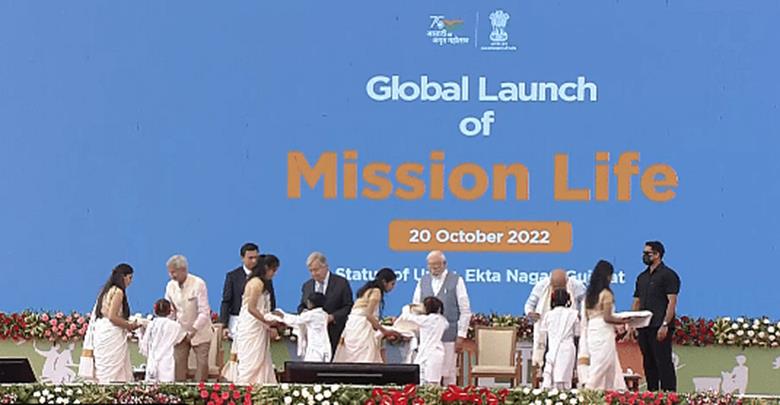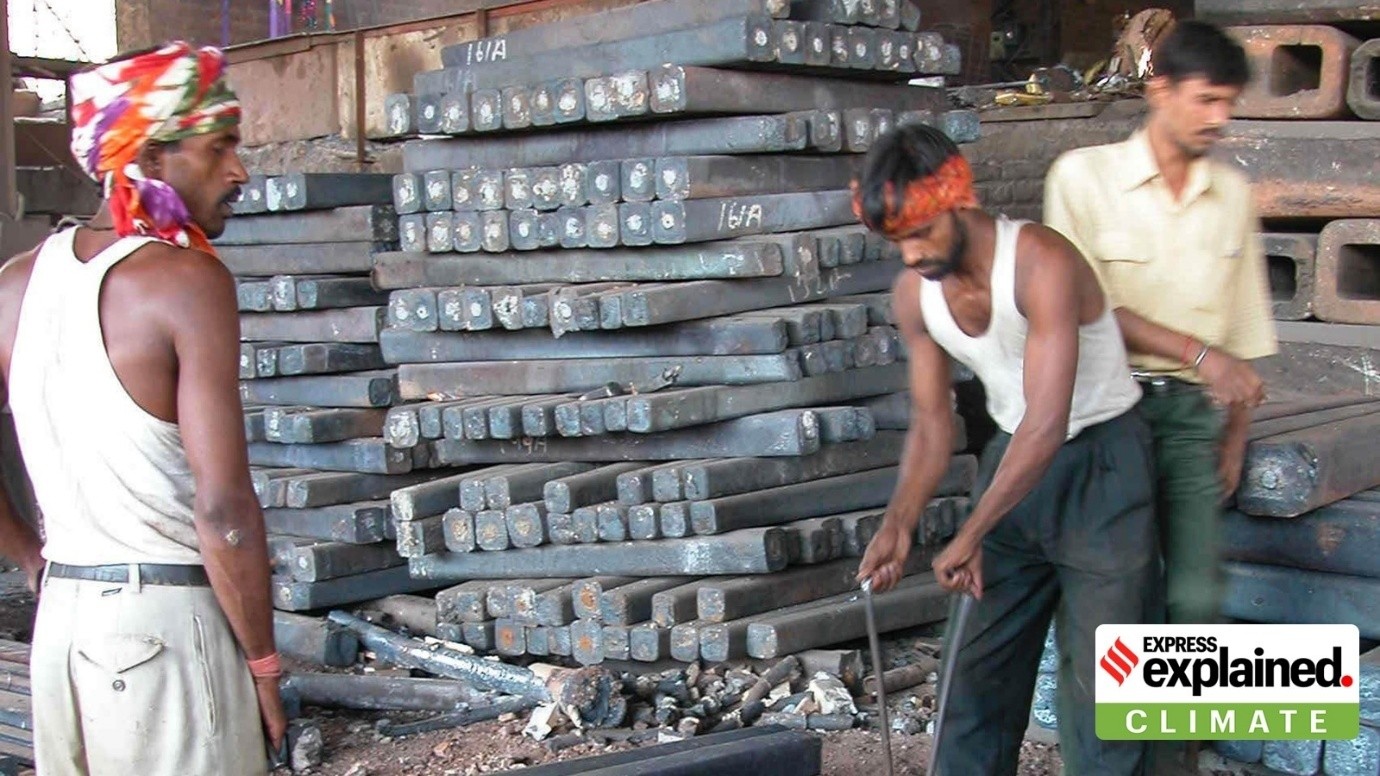Description

Copyright infringement not intended
Context: The Prime Minister, Shri Narendra Modi attended a bilateral meeting with UN Secretary-General, H.E. Mr Antonio Guterres and subsequently launched Mission LiFE at the Statue of Unity, Ekta Nagar, Kevadia, Gujarat.
Details:
PM on Mission LIFE:
- The Prime Minister remarked, The mantra of Mission Life is 'Lifestyle For Environment'.
- Emphasising the benefits of Mission LiFE, the Prime Minister said that it connects the powers of the people for the protection of this earth, and teaches them to utilise it in a better way.
- He underlined that Mission LiFE makes the fight against climate change democratic, in which everyone can contribute within their capacity.
- Mission LiFE believes that the environment can be protected by making changes in our lifestyle
- Mission LiFE makes us all trustees of the environment. A trustee is someone who does not allow indiscriminate use of resources. A trustee works as a nurturer and not as an exploiter
- The Prime Minister elaborated that Mission LiFE emboldens the spirit of the P3 model i.e. Pro Planet People. Mission Life, unites the people of the earth as pro planet people, uniting them all in their thoughts.
- It functions on the basic principles of ‘Lifestyle of the planet, for the planet and by the planet’.
- The Prime Minister quoted the Atharvaveda and recited, “‘Mata Bhumiah Putroham Prithivyah’ that is, the earth is our mother and we are her children.”
- The Prime Minister threw light on the concept of 'Reduce, Reuse and Recycle' and circular economy and mentioned that it has been a part of the lifestyle of Indians for thousands of years.

India’s commitment to addressing climate change:
- The total forest cover is 21.71% of the total geographical area in 2021, compared with 21.67% in 2019
- India’s forest cover is increasing and so is the population of lions, tigers, leopards, elephants and rhinos.
- The annual per capita carbon footprint in India is only about 1.5 tonnes, compared to the world average of 4 tonnes per year.
- Initiatives like Ujjwala Yojana, 75 ‘Amrit Sarovars’ in every district and unprecedented emphasis on waste to wealth.
- Today India has the fourth largest capacity for renewable energy in the world. India's renewable energy capacity has increased by about 290 percent in the last 7-8 years
- India has also achieved the target of achieving 40 percent of the electric capacity from non-fossil-fuel sources 9 years ahead of the deadline.
- India had also achieved a target of 10 percent ethanol blending in petrol, and that too 5 months before the deadline.
- Through the National Hydrogen Mission, India has moved towards an environment-friendly energy source. This will help India and many countries of the world to achieve their goal of net zero
- Highlighting the global campaign of One Sun, One World, One Grid, the Prime Minister remarked that India now wants to increase its partnership with the world even more while strengthening its resolve towards such goals.
- By leading the creation of the Coalition for Disaster Resilient Infrastructure, India has conveyed its concept towards environmental protection to the world. Mission LiFE is the next step in this series
Background:
- Mission LiFE aims at following a three-pronged strategy for changing our collective approach towards sustainability.
- First is by nudging individuals to practise simple yet effective environment-friendly actions in their daily lives (demand); second is by enabling industries and markets to respond swiftly to the changing demand (supply) and; third is to influence government and industrial policy to support both sustainable consumption and production (policy).
- The idea of LiFE was introduced by India during the 26th United Nations Climate Change Conference of the Parties (COP26) in Glasgow in 2021.
- The idea promotes an environmentally conscious lifestyle that focuses on ‘mindful and deliberate utilisation’ instead of ‘mindless and wasteful consumption.
- With the launch of the Mission, the prevalent "use-and-dispose" economy governed by mindless and destructive consumption will be replaced by a circular economy, defined by conscious and deliberate consumption.
What are the Other Related Initiatives?
- National Afforestation Programme (NAP)
- National Mission for a Green India (GIM)
- National Action Plan on Climate Change (NAPCC)
- National Biodiversity Action Plan
- Rural Livelihood Schemes: Recognition of natural resources intrinsically linked to rural livelihoods is also reflected in flagship schemes like the Mahatma Gandhi National Rural Employment Guarantee Scheme (MGNREGS) and the National Rural Livelihood Mission (NRLM).
https://pib.gov.in/PressReleasePage.aspx?PRID=1869466











